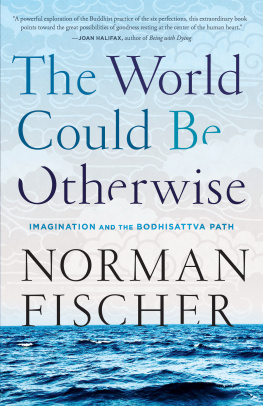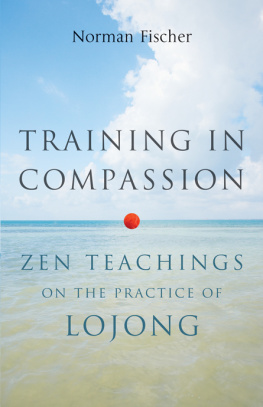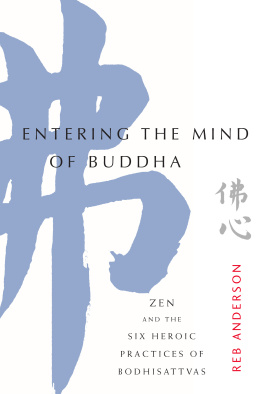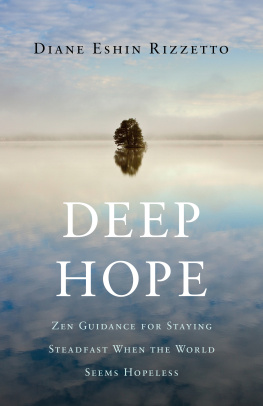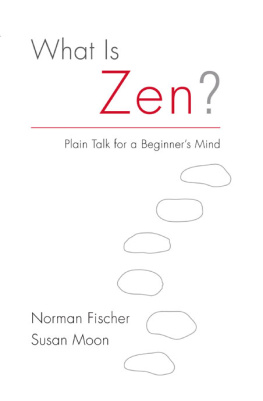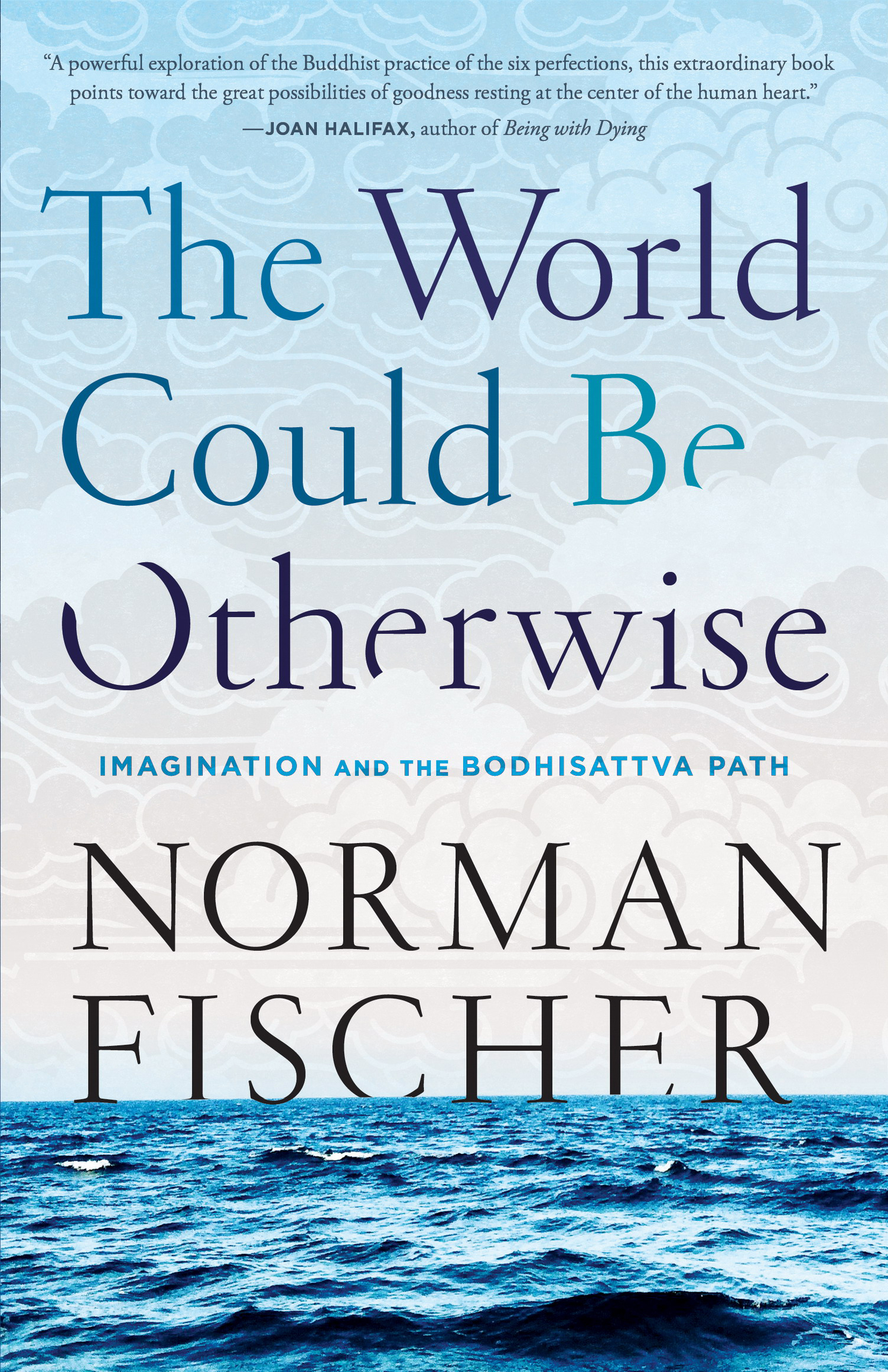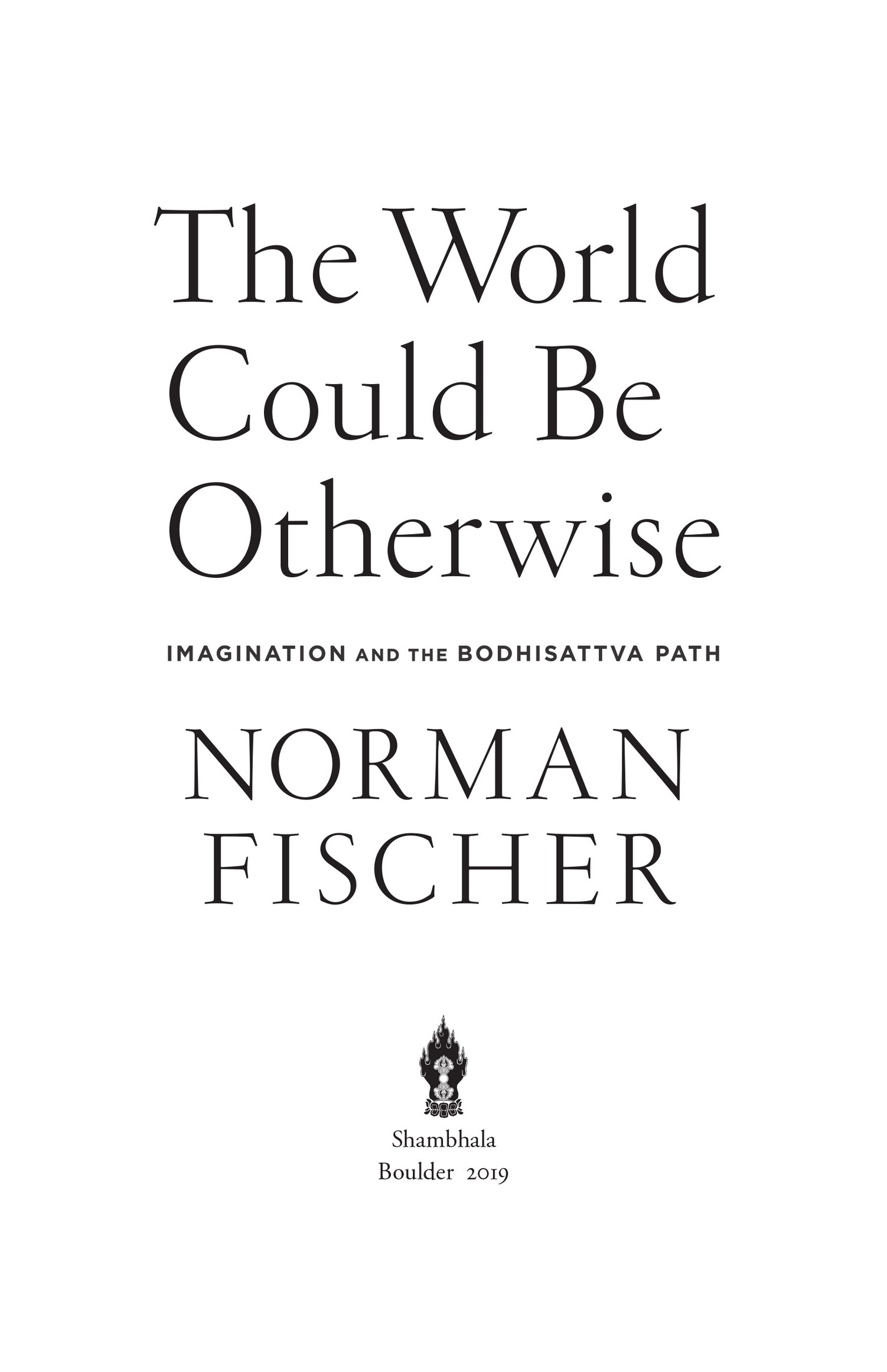Praise for The World Could Be Otherwise
We need to be reminded again and again to stay in touch with our own interior world, where a deeper meaning of life can be found. This book with its fresh approach to the six paramitas is here to do that very job. It gently yet powerfully reminds us to not get lost in the trap of self-centeredness and materialism, but to nourish our spiritual impulse which wants to expand our heart. Im deeply thankful to Norman for writing this with such deep insight and love.
Anam Thubten, author of Embracing Each Moment and The Magic of Awareness
Buddhists are often skeptical of the word imagination, interpreting it to mean a flight into fantasy. But Norman Fischer, in his new book, The World Could Be Otherwise, makes it clear that imagination is the raw potential, the very source of inspiration, creativity, and astonishment that lies at the heart of a fully integrated spiritual life. He leads us with precision and skill through the six perfections (paramitas), using imagination as the uplifting force that binds the hearts calling for perfection to our human frailties. And he couples these inspiring teachings with grounded daily-life practices. This book is a source of renewal for anyone willing to move beyond their complacency and routine to ponder the wondrous possibilities that abound.
Rodney Smith, author of Touching the Infinite: A New Perspective on the Buddhas Four Foundations of Mindfulness
As an accomplished Zen teacher who is also a poet, Norman Fischer understands the power of the imagination. If reality is not fixed, it must be reimagined over and over, and there is no place to see that more clearly than in the history of great Zen masters.
The book shows us the difference between unimaginative religion and the open vision of possibility that authentic religion enables. It teaches us how to develop the imaginationa discipline of imaginationthat shows us how to see the world otherwise.
Fischers discussion of practice is incredibly skillful, honed through decades of personal engagement. We get a glimpse of the difference between imaginative religious practice and practice that ironically is stultifying. Working through the Buddhist six perfections, he asks not just what each paramita is, but how it can be imagined today and how we might begin to practice it creatively. Every section in the book concludes with practices providing examples of what we might do with these Buddhist teachings in our own time and place.
A unique contribution to a vital dimension of Buddhism, written by someone who has long practiced what he is teaching. Highly recommended.
Dale S. Wright, author of The Six Perfections: Buddhism and the Cultivation of Character and What Is Buddhist Enlightenment?
Also by Norman Fischer
PROSE
What Is Zen? Plain Talk for a Beginners Mind (co-authored with Susan Moon)
Experience: Thinking, Writing, Language, and Religion
Training in Compassion: Zen Teachings on Lojong
Sailing Home: Using the Wisdom of Homers Odyssey to Navigate Lifes Perils and Pitfalls
Taking Our Places: The Buddhist Path to Truly Growing Up
POETRY
Untitled Series: Life as It Is
On A Train At Night
any would be if
Magnolias All at Once
Escape This Crazy Life of Tears: Japan, July 2010
The Strugglers
Conflict
Questions/Places/Voices/Seasons
I Was Blown Back
Slowly but Dearly
Success
TRANSLATION
Opening to You: Zen-Inspired Translations of the Psalms
Shambhala Publications, Inc.
4720 Walnut Street
Boulder, Colorado 80301
www.shambhala.com
2019 by Norman Fischer
All rights reserved. No part of this book may be reproduced in any form or by any means, electronic or mechanical, including photocopying, recording, or by any information storage and retrieval system, without permission in writing from the publisher.
Shambhala Publications is distributed worldwide by Penguin Random House, Inc., and its subsidiaries.
Ebook design adapted from printed book design by Daniel Urban-Brown
Cover art by Shutterstock/Elena Zolotukhina, iStock/Alvarez // Cover design by Daniel Urban-Brown
Library of Congress Cataloging-in-Publication Data
Names: Fischer, Norman, 1946 author.
Title: The world could be otherwise: imagination and the Bodhisattva path / Norman Fischer.
Description: First Edition. | Boulder: Shambhala, 2019.
Identifiers: LCCN 2018023151 | ISBN 9781611805048 (pbk.: alk. paper)
eISBN 9780834842144
Subjects: LCSH: Paramitas (Buddhism) | Buddhist ethics. | Mahayana
BuddhismDoctrines.
Classification: LCC BQ4336 .F57 2019 | DDC 294.3/444dc23
LC record available at https://lccn.loc.gov/2018023151
v5.4
a
Every man lives in two realms, the internal and the external. The internal is that realm of spiritual ends expressed in art, literature, morals, and religion. The external is that complex of devices, techniques, mechanisms, and instrumentalities by means of which we live. Our problem today is that we have allowed the internal to become lost in the external. We have allowed the means by which we live to outdistance the ends for which we live. So much of modern life can be summarized in that arresting dictum of the poet Thoreau: Improved means to an unimproved end. This is the serious predicament, the deep and haunting problem confronting modern man. If we are to survive today, our moral and spiritual lag must be eliminated. Enlarged material powers spell enlarged peril if there is not proportionate growth of the soul. When the without of mans nature subjugates the within, dark storm clouds begin to form in the world.
M ARTIN L UTHER K ING J R ., from Nobel Lecture, December 11, 1964
Call forth as much as you can
Of love, of respect, and of faith
Listen to the teaching of the gentle Buddhas
Taught for the weal of the world, for heroic spirits intended
Opening verse of Prajnaparamita Sutra in Eight Thousand Lines and Its Verse Summary, trans. Edward Conze
I am certain of nothing but the hearts affection and the truth of Imagination.
J OHN K EATS
1
Imagination
HERES A STORY ABOUT HOW imagination changes the world, even in the worst possible circumstances. It involves the French surrealist poet Robert Desnos.
Desnos was Jewish. During World War II he went underground to fight for the Resistance. He was captured and sent to the concentration camps.
One day, along with many other men, Desnos is crowded onto the bed of one of the trucks that transports prisoners from the barracks. The men fully understand where they are going. The trucks always leave the barracks full and return empty. Their destination is the gas chambers and the ovens.
No one in the truck bed speaks. The mood is resigned, stricken. Eyes lowered. Faces grim.
When the truck arrives, the prisoners slowly and silently descend, as if in a dream. The guards, normally full of jokes and banter, fall silent, unable to avoid catching the prisoners mood. But this almost religious silence is abruptly interrupted. One of the men in the line of prisoners suddenly, with great animation, jumps up, pivots, grabs the hand of the man behind him. Astonishingly, his nose almost touching the mans hand, his body coiled tight with energy, he begins to read the mans palm.

